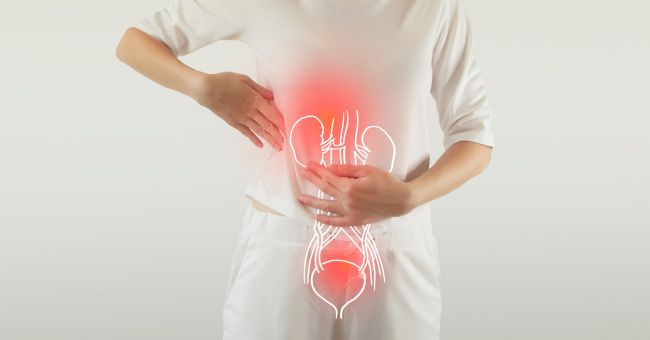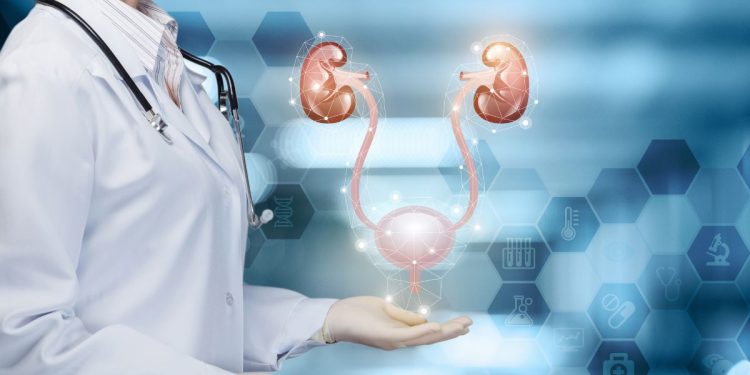Childbirth is a miraculous event that brings joy and fulfillment to families. However, it can also lead to various physical changes in a woman’s body, including the weakening of the bladder muscles. Postpartum, some women may experience symptoms like urinary incontinence, which can affect their daily lives and self-confidence. Fortunately, effective treatments and lifestyle changes are available to help manage and even cure a weak bladder following childbirth.
Moreover, the weakening of bladder muscles commonly occurs during childbirth due to the strain placed on the pelvic floor muscles that support the bladder, uterus, and other organs. Vaginal delivery, particularly if it involved a prolonged pushing stage or the use of instruments such as forceps, can put additional stress on these muscles. Furthermore, hormonal changes and the stretching of tissues during pregnancy can also contribute to the weakening of the bladder muscles.
“While it is important to note that not all women experience postpartum urinary incontinence, it is estimated that a significant number do”.

Understanding Weak Bladder after Childbirth:
Weak bladder, also known as urinary incontinence, is common among women after giving birth. It can manifest as urine leakage during physical activities, coughing, sneezing, or even the sudden urge to urinate. This condition occurs due to the strain placed on the pelvic floor muscles during childbirth.
Causes of a Weak Bladder after Childbirth:
The main cause of a weak bladder after childbirth is the stretching and weakening of the pelvic floor muscles. The pressure exerted on these muscles during delivery can damage the nerves and supportive tissues, resulting in decreased bladder control.
Treatment Options for a Weak Bladder:
1. Pelvic Floor Exercises:
Strengthening the pelvic floor muscles through regular Kegel exercises can improve bladder control and reduce urinary incontinence symptoms.
2. Bladder Training:
This technique involves gradually increasing the time between bathroom visits to help retrain the bladder and increase its capacity.
3. Medications:
Some medications, such as anticholinergics, can help relax the bladder muscles and reduce the frequency of involuntary contractions.
4. Minimally Invasive Procedures:
Treatments like electrical stimulation and vaginal inserts can provide targeted therapy to strengthen the pelvic floor muscles.
5. Surgical Intervention:
In severe cases, surgical procedures such as bladder suspension or sling placement may be recommended to provide additional support to the bladder.
Lifestyle Changes to Support Bladder Health:
1. Maintaining a Healthy Weight:
Excess weight can put additional strain on the pelvic floor muscles. Maintaining a healthy weight through regular exercise and a balanced diet can help alleviate the symptoms of a weak bladder.
2. Staying Hydrated:
Adequate hydration is crucial for overall bladder health. Drinking enough fluids throughout the day but avoiding excessive consumption before bedtime is important.
3. Avoiding Bladder Irritants:
Certain foods and beverages, such as caffeine, alcohol, acidic fruits, and spicy foods, can irritate the bladder and worsen incontinence symptoms. Limiting their intake can help improve bladder control.
4. Timed Voiding:
Establishing a regular bathroom schedule can train the bladder to hold urine for longer periods and reduce the frequency of urgency.
5. Kegel Exercises:
Regularly practicing Kegel exercises strengthens the pelvic floor muscles, which can improve bladder control and reduce urinary incontinence.
Conclusion:
A weak bladder following childbirth can be a distressing condition for many women. However, significant improvements can be achieved with the right combination of treatment options, lifestyle changes, and consistent efforts. By strengthening the pelvic floor muscles, adopting healthy habits, and seeking appropriate medical advice, women can regain control of their bladder and enhance their overall quality of life after childbirth.
Frequently Asked Questions (FAQs):
Q1: Can a weak bladder following childbirth be cured?
A weak bladder following childbirth can be significantly improved or even cured with the appropriate treatment and lifestyle changes.
Q2:How long does it take to recover from a weak bladder after childbirth?
The recovery time can vary for each individual. With consistent treatment and pelvic floor exercises, noticeable improvements can be seen within a few weeks to several months.
Q3:Can a weak bladder affect future pregnancies?
While a weak bladder can potentially impact future pregnancies, managing and treating the condition can help minimize its effects.
Q4: Are there any natural remedies for a weak bladder after childbirth?
Some natural remedies, such as herbal supplements and acupuncture, may provide relief for mild cases. However, it is important to consult with a healthcare professional before trying any alternative therapies.
Q5:Is it necessary to see a doctor for a weak bladder after childbirth?
It is advisable to consult a healthcare professional if you are experiencing persistent symptoms of a weak bladder. They can assess your condition, provide a proper diagnosis, and recommend suitable treatments.















































